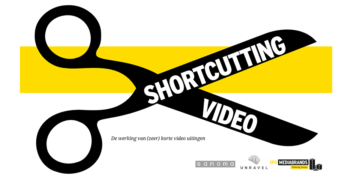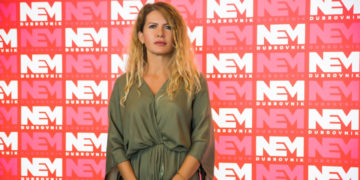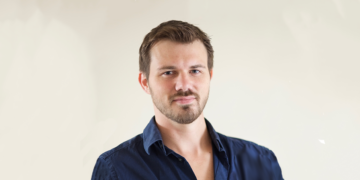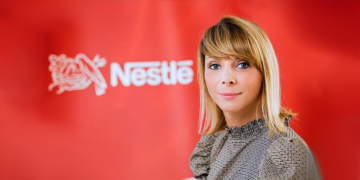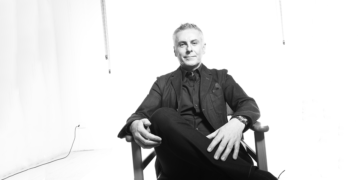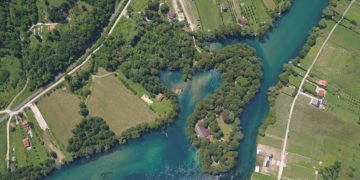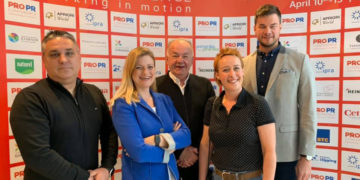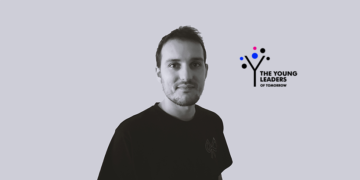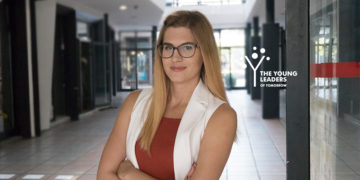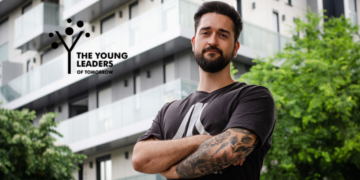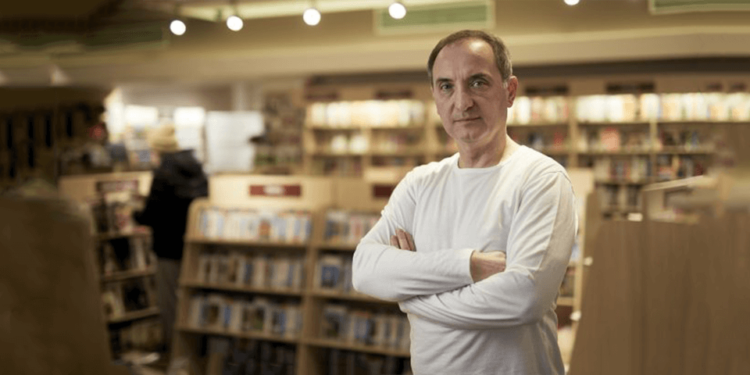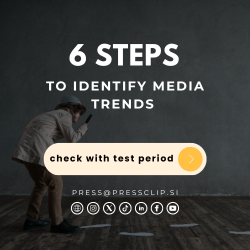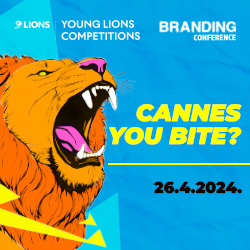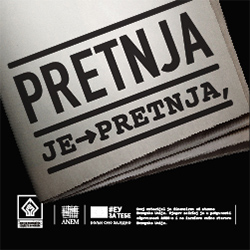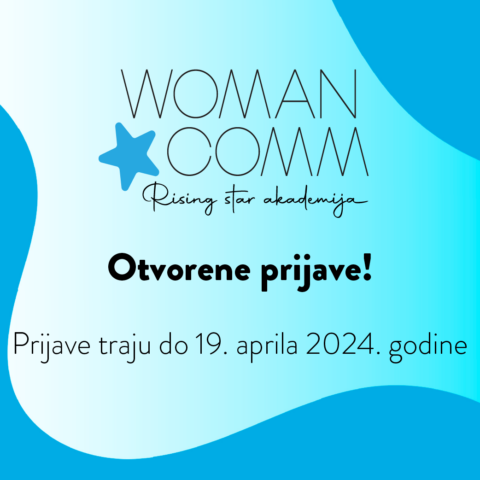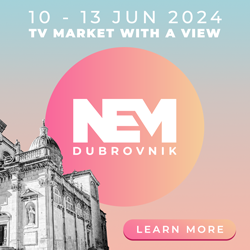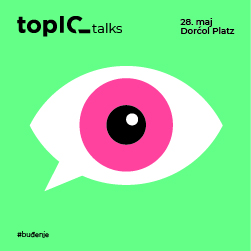Drugi jezik na kojem je dostupan ovaj članak: Bosnian
Lazar Džamić, an expert of brilliant intelligence, gave an interview for nova.rs to promote his new book, Ways around signs/Putevi oko znakova, published by Singidunum University’s Media and Communications Faculty.
Džamić is a leading digital strategist with global experience, a lecturer at the Digital Marketing Department in Singidunum University’s Media and Communications Faculty of (FMK), author, and former head of brand planning at the European headquarters of Google. His books, Cvijećarnica u Kući cveća and Čaj od šljiva, are beloved by readers of all ages.
Lazar Džamić’s newest book, Putevi oko znakova, is a collection of essays, interviews, and comparative travel writing that explores the British and Balkan ethoses.
“It is fundamental to our lives that we don’t face a single path in front of us so much as many short sections with various signs at the junctions suggesting possible paths for us to go down. The problem is that there are lots of signs and many of them are there intentionally to seduce us, generally from commercial or political motives. They don’t care about our overall journey, just whether we will turn down that particular path, at that moment, because they can benefit from it. Each of them is a small tollbooth, focused only on its section. For our overall journey, which unfortunately isn’t by a single straightforward path, to be successful and make sense, we have to know how to read lots of these signs, which lunge at our various mental triggers to get us to behave in accordance with their instructions. And that’s why we are so confused, individually, and as a civilisation. These are the signs of archetypal stories, false promises, impulse stimulation, lobotomised consumption, and belief in fairytales, commercialised and private. These signs are often traps, our civilisation’s quicksand,” – our interlocutor tells us.
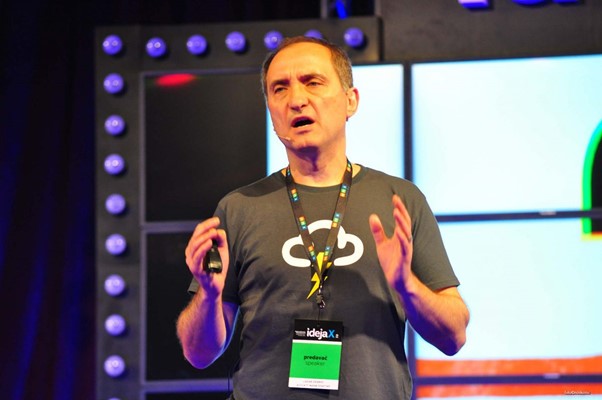
Your new book’s subtitle is On Stupidity, the Brand Europe, Human Nature, and the Fantasy of Emigration. What do you mean by this?
Lazar Džamić: “We’ve learned more in the last 30 years about human nature than in the entire history of civilisation prior to that, thanks to the cognitive sciences, which, of course, there are no courses of study for yet in Serbia… The best way to understand the essence of human nature is to imagine a mutated Mickey Mouse – with four circular ears. The big circle, where the face normally is, is our evolutionary nature, everything we come “preprogrammed” with genetically: response to the human face, “tribal” belonging, and the desire to overcome it, response to status, maximising benefit for the least effort… And especially, a natural inclination to respond to archetypal stories. The four ears are family, school, media, and the political and economic sphere, and they shape our final behaviour and opinions to the extent to which they embrace or restrict those evolutionary tendencies. Which is why it’s more normal to steal and strut in some societies than in others; or knowledge is valued more than political connections in some, somewhere they have fistfights in parliament, and elsewhere they keep their arguments civil; in some places people are better citizens than they are consumers, but in yet others it’s the reverse. You notice this difference in how biology and sociology interact better when you live in other countries. Everywhere, people are the same (nature) and different (system). The new stories for emigrants are just that: new narratives, new fictions that have to be “read” and understood if you want to function well in those systems. Every emigrant enters a new fiction, a new narrative …
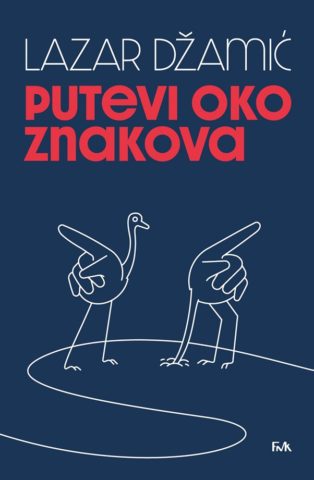
Book “Ways around signs/Putevi oko znakova” by Lazar Džamić, illustrated by Srđa Dragović
You say that one of the most important modern narratives is the narrative of Europe.
Lazar Džamić: Europe is more than just a geographical destination, it’s a story and so a brand. All brands are stories and experiences. The brand of Europe is a powerful story, but it’s in trouble. The brand has been neglected, it’s under pretty poor management. It’s under attack from all sides, but is not helping itself either, because it’s not telling a good or convincing story, or trying to improve the experience, not least because of misplaced faith in another brand, the brand of the USA, and its fundamental narrative of neoliberalism. The 10 texts about the brand of Europe in the book talk about the brand’s promise and why it hasn’t been fulfilled and what should be done about that.
What events have confirmed the rightness of these roadsigns?
Lazar Džamić: Everything going on in our world right now, and over the past 30 years: the most developed societies in the world, capable of sending intelligent robots to Mars, cannot produce basic surgical masks or plastic aprons because production has been outsourced to China for profit; the oceans have been turned into the greatest rubbish dumps on earth, because it’s convenient to buy bottled water and we pig out on sugary drinks; were short on hospitals, but long on massive monuments and gilded temples, as though true belief were in a building and not in the heart; planetary catastrophe is fast approaching, and we are wasting time and energy bingeing TV series; the most advanced economy in the world is consciously killing off its own population for profit, while it gives its competitors free range over its digital networks. And so on… There are signs of stupidity, confusion, anxiety, and self-deception everywhere you turn.
You are appalled, in your own words, by “the spiritual cheapness of modern media.”
Lazar Džamić: Yes, how cheap must you have you sold your soul to the devil to go to work at a tabloid that peddles lies on a daily basis in order to destroy the reputations and lives of people those tabloids’ masters consider undesirable? Or because of the number of views, reactions, and comments, and the money they bring in, which justifies dragging all these emotional and mental wretches through the mud, just because they’ve been part of some scandal or tragic event? How cheap must your soul be to make money out of the misery and tragedy of others, the stupidity of others, and our yawning appetite for scandal, our need for a psychological safety blanket to reassure us other people have it worse and our own lot is not quite so bad, even if it’s not great. A large percentage of modern commercial and advertising media is based on such cynical soullessness. What’s important is to make money any way you can, even if it means promoting and glorifying the basest instincts of our biological nature. The face of so many modern media is the face of that mutated Mickey Mouse, the face of our biology.
Has political correctness affected freedom of speech, and how?
Lazar Džamić: I don’t quite get that phrase and what it’s meant to mean, because it means so many different things to so many different people… If it means decency and communication, and not calling children cretins, idiots, morons, dolts, or similar terms, then I’m absolutely for correctness. If we mean by it that a “defectologist” should be referred to as a “rehabilitator”, well, I certainly don’t want to live in a society that tells its most vulnerable citizens – who should, pardon the irony, be cared for – that they are defective. That’s fascist. If you mean that job descriptions or titles shouldn’t have only a masculine form, or that it should bother us that most colloquial phrases for young pretty women have an animal reference (“Chick”, “Bird”, etc), then I support that too, because it forces us to be more appropriate with each other and more conscious of equality. It starts and often ends with language. But if what you mean by it is American stupidities like, for example, that Einstein’s equation on energy is male chauvinism, because it includes mass as a fundamental concept and that is a “masculine” characteristic, or the recent proposal that all dogs in America be referred to as canine Americans, then my view is what I’ve already said: stupidity.
What are the various ways in which we limit expression?
Lazar Džamić: There is a lot of both constructive and unconstructive ways, and a lot of them are socially justified. Which is why the law includes the categories of insult and slander, which are restrictions of freedom of speech. It boils down to what the social value of limiting freedom of speech is, what its constructive contribution to a more equal and civilised life is. But political limits to such freedom, that’s different and has no connection with correctness so much as with what the political elite want, a pervasive atmosphere and rules of behaviour in society. Honestly, we have much much bigger problems with freedom of speech, both locally and globally, than so-called political correctness, because our entire public discourse has long been entirely politically incorrect. No wonder it doesn’t like opposing tendencies…
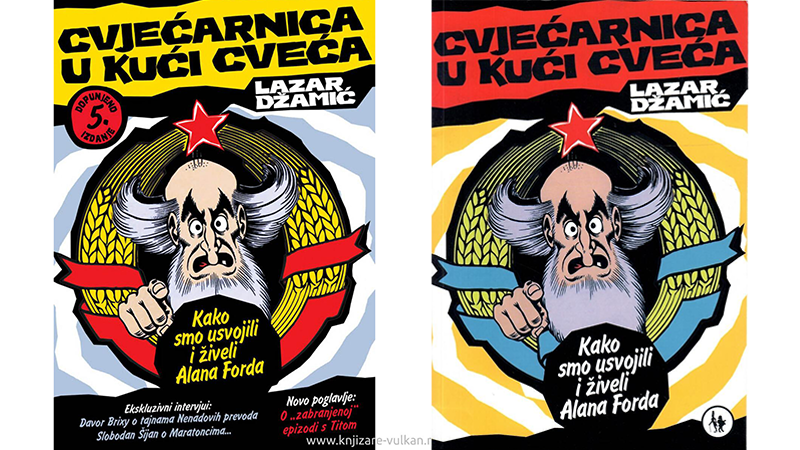
You are author of, Cvjećarnica u kući cveća, a study on the Yugoslav success of the Alan Ford comic. What similarities do you see between this comic and our current reality?
Lazar Džamić: For us, Alan Ford is a documentary record. In the Balkans it plays out as tragedy, and not as surrealist farce, which is what it was originally in Italy. It offers a critique of any corrupt, dysfunctional, propagandised society. Here, farce and surrealism had the additional advantage that only we recognised the absurdity of our daily life and the black humour we lived it through for more than a hundred years. I recommend everybody go see the exhibition in the Museum of Yugoslavia, as it offers a unique example to view more than 150 original boards drawn by Magnus and Bunker (more Magnus than the latter) for the first 75 issues. And there is the small side exhibition of various original issues of the comic, and the fantastic and unique souvenirs.
What has the coronavirus pandemic laid bare?
Lazar Džamić: The incompetence of the ruling elites. The fragility of individualism and the ideology of profit at any price. The abiding force of the narrative of fear. It’s also shown us the heroism of ordinary people, as always. Heroism, like evil, is banal, present in all of us, and various individual circumstances can trigger one or the other. Our inner circumstances, family histories, and personal narratives, of course. The coronavirus has shown how broken the world’s substance is, how much confusion the modern media space has produced and how it has manipulated it. The developed world has no idea how to act without a plan. It thinks everything can be paid for, without any need for a new way of organising society. At the same time, it has made clear how much stronger emotions are then facts and so how much more important they are in the modern media space. Platforms created by the developed countries have been turned against them, weapons wielded by all those who don’t like that way of life. Here, the pandemic hasn’t laid anything bare, it’s just created a lot more opportunities to point out the system we live in. There are no major surprises here, just even more nausea at the quantity, that’s all.
What signs are we not following in Serbia?
Lazar Džamić: As to that, there are just too many of them. We ignore all the signs that underscore the importance of expertise, or point forward and not back. The ones that elevate intelligence, instead of belief or buffoonery, or that lead to civic consciousness and not feudalism, that teach respectfulness and order – we ignore them all. And the fruits are all around us. We’re experts at preferring the byways, swamps, and chasms, so that we can keep on going in circles, lost in space.



